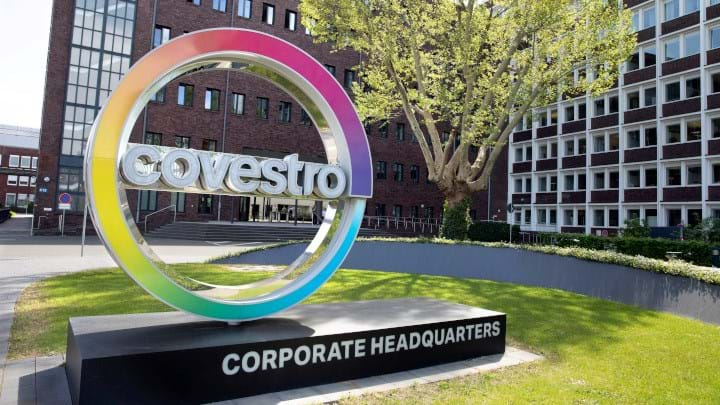Covestro scraps energy usage targets in favour of improved efficiency

GERMAN chemicals manufacturer Covestro has scrapped sustainability targets to reduce energy consumption and replaced them with production efficiency goals.
The company is targeting a 20% reduction in CO2 emissions per tonne of product by 2030 compared to the 2020 level. This replaces the goal of halving total energy consumption across main production sites by 2030 compared to 2005 levels.
Thorsten Dreier, CTO of Covestro, said the shift in focus from total energy consumption towards efficiency per tonne of product is because “there is currently not enough renewable energy available at affordable prices to even begin to cover demand”.
Covestro says they have reduced energy consumption by 40% since 2005. However, according to the company’s latest sustainability report, total energy consumption increased by 7% in 2024 to 15,266,000 MWh, with 8% of energy supplied by non-fossil fuel sources.
Dreier added: “We are on the right track, and I am confident that we will achieve our sustainability goals. The energy efficiency measures will make an important contribution to this.”
Covestro has retained both its targets of achieving carbon neutrality by 2035 and to reduce fossil fuel demand by 60% by 2030 and says that the new efficiency goal will amount to a reduction of 550,000 tCO2e. The company’s total scope 1 and 2 emissions in 2024 were 4.85m tCO2e, down 5% on the 2023 figure. However, total emissions, including “downstream” scope 3 contributions, were 23.39m tCO2e, a 9% increase on 2023. While Covestro aims to achieve net-zero scope 3 emissions by 2050, the company also expects them to rise by 3.6m tCO2e by 2035.
Geraint Evans, a Fellow of IChemE and chair of the institution’s clean energy special interest group, said he was “encouraged” by the broad climate-neutrality goal. However, he called for a “stronger recognition of clean energy use within these new targets related to both climate change and impacts on air, land and water”.
Evans added: “We support the need for companies to regularly review their climate action targets to monitor progress, to keep them relevant and achievable, and to continuously improve.”
Plant improvements
The changes to Covestro’s sustainability targets were accompanied by an upgrade to Europe’s biggest toluene diisocyanate (TDI) production plant in Dormagen, Germany, which the company says will now use 80% less energy than the conventional process. Covestro claims emissions at the new plant will be reduced by 22,000 tCO2e per year.
The upgrades to the plant include a new reactor that uses generated reaction energy for steam production to power further manufacturing.
Christine Mendoza-Frohn, Covestro’s head of materials sales performance in Europe, the Middle East and Africa, said: “With the successful modernisation, we can now offer our customers TDI with an even better carbon footprint.
“This supports our customers in achieving their own sustainability goals and strengthens our position as a reliable partner for climate-neutral and circular solutions.”
Recent Editions
Catch up on the latest news, views and jobs from The Chemical Engineer. Below are the four latest issues. View a wider selection of the archive from within the Magazine section of this site.




